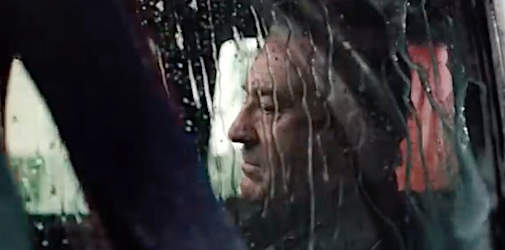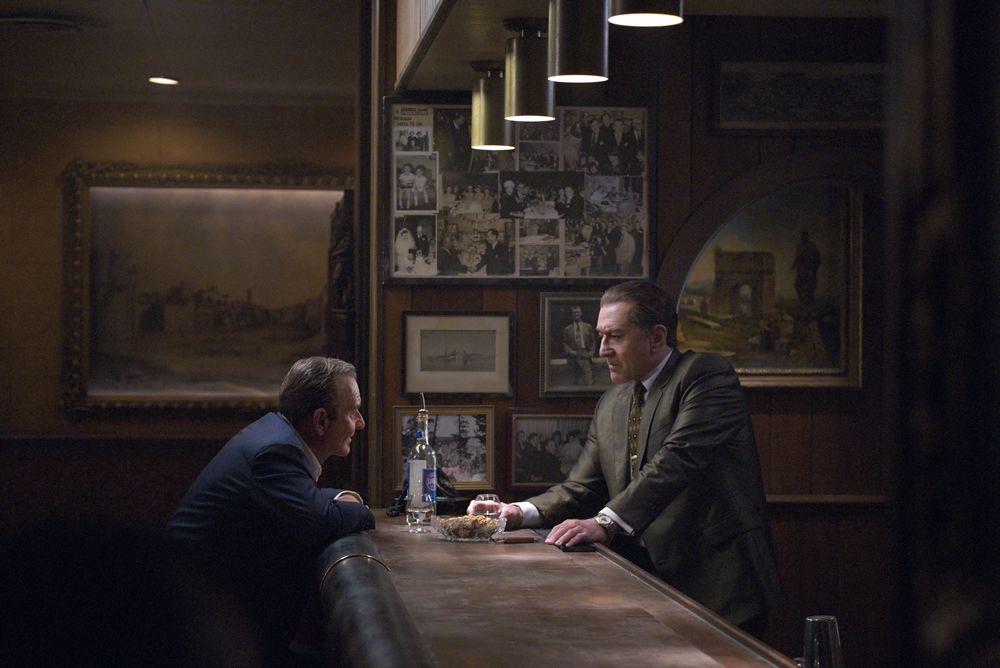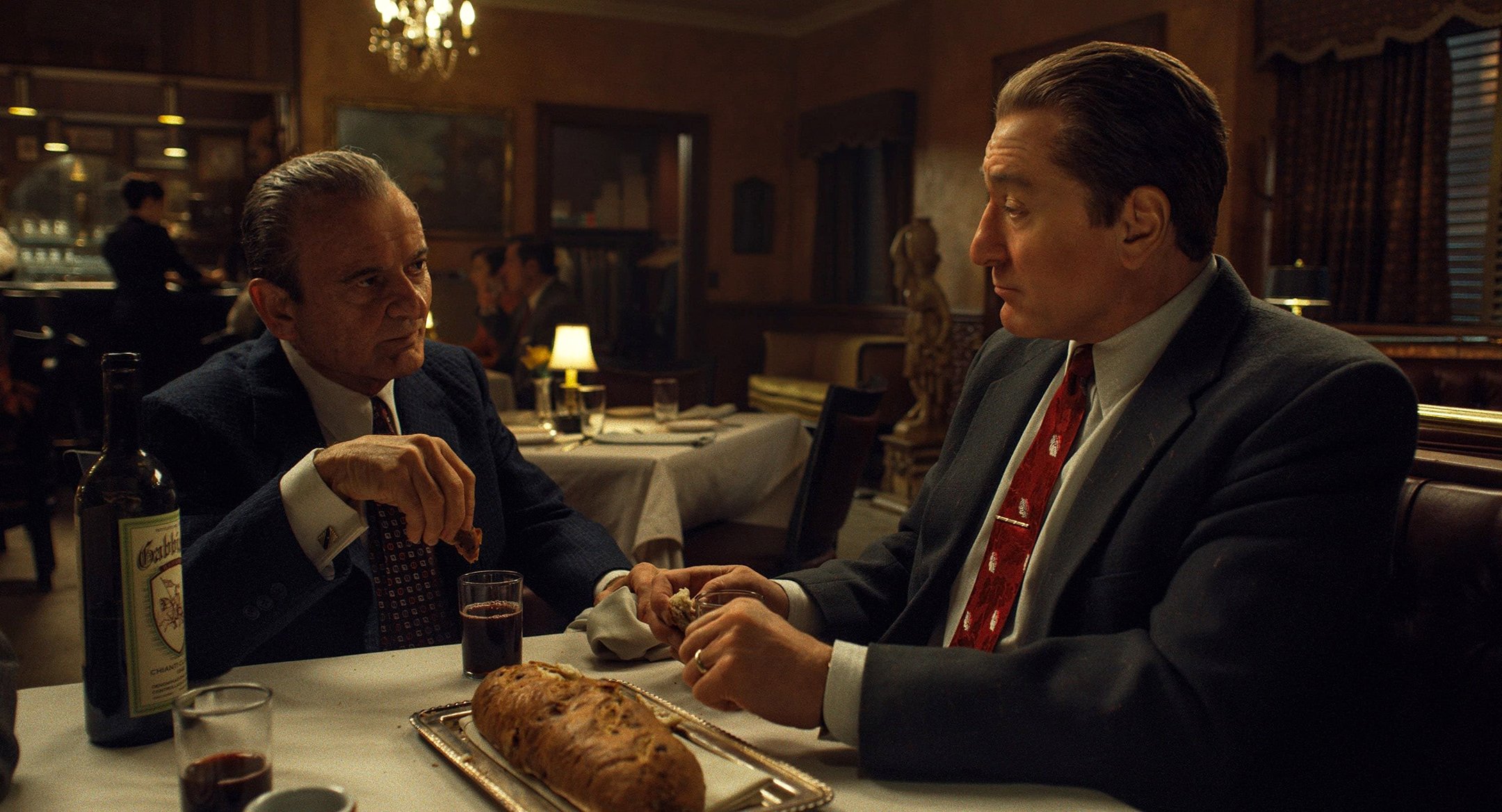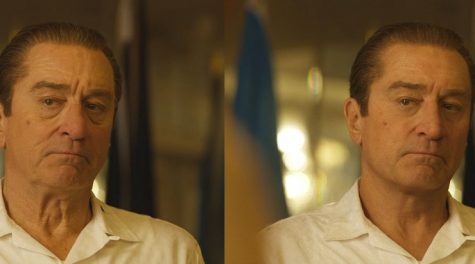The Irishman (2019) Review
“You don’t know how fast time goes until you get there.”

February 10, 2020
While there has never been any denying that Martin Scorsese’s best work tends to focus on the folly of man and the destruction brought upon by decadence, it would be hard to make a case against the fact that he is best known for his crime-focused filmography, from the character-driven Taxi Driver to the more thematically similar GoodFellas, with the peppering of religious narratives sprinkled in between, such as The Last Temptation of The Christ and more recently, Silence. However, with the Best Picture nominated The Irishman, Scorsese has built a world that has nary a trace of godliness nor grandeur, coloring the life of organized criminals as not morally gray, but a sickening and grimy black with practically no light at the end of the tunnel.
The Irishman, also titled I Heard You Paint Houses, after the nonfiction narrative book it was based on, follows five decades in the life of Frank Sheeran, (played by the great Robert De Niro) a World War II veteran-turned-teamster-turned-union official and hitman, associating with mentors of opposing sides – the affable and frighteningly powerful mafioso Russell Bufalino (Joe Pesci) and the gregarious, then-renowned, and now-controversial union leader Jimmy Hoffa (Al Pacino). The film follows Sheeran’s life from the mid-1950s to his retirement home lifestyle in the early 2000s, displaying all of the violence, tragedy, misunderstandings, and disarray along with it.

If the savagery in Scorsese’s other work was known for being brutal, over-the-top, and sometimes unnecessary, this film shows all of it in both the most realistic, and most depressing, unfashionable manner, to the greatest possible effect. It seems after a good few decades of hyperviolence being depicted in his films, Scorsese has become even more jaded than before – while very little in this film could be called dull, virtually none of it is grandiose, or even particularly electrifying. The way the murders and other violence are shown off in The Irishman is not hyperviolent, but hyperrealistic, making for a cast of villains who feel less like the somewhat likable ones of GoodFellas and more downright terrifying, more like the mafia actually was and is: cruel, relentless, petty. There are points where the film feels vastly more like a horror-thriller than an epic drama driven by its characters and acting.
However, the acting is the highlight of the film. De Niro masterfully plays a man with both inner turmoil and fierce loyalty with total control of his craft, as expected – he is Robert De Niro, after all – whereas Al Pacino replicates the charisma of Jimmy Hoffa, a charisma which slowly turns into desperation, overconfidence, and narcissism as he hopelessly vies to reclaim power that he sees as stolen from him when he takes a few too many blows to the reputation. Yet, with two absolute powerhouses of actors taking credit first, Joe Pesci’s character is the most entertaining, as Russ Bufalino, and not for reasons one would expect of Pesci. Despite the fact that he’s best known for hammy, scenery-chewing type characters, his run with the much more subdued, subtle Bufalino makes his screen presence absolutely enthralling, and arguably the only ‘likable’ character in the film, owing to the forgiving and understanding nature he shows to the even the more frightening of mob figures.
Eventually, though, that fearful, intimidating nature of the mob life loses its horrific qualities. Despite the horrendous, disgusting acts each of the main cast is directly responsible for, the three and a half hour runtime (which is far and away the most intimidating aspect of the film) that spans across half of a century practically guarantees that the audience will develop an emotional attachment, because even though the entire cast commits heinous crimes, there is a camaraderie between them that can charm you into wanting to see more. Yet by the end of the movie, you also see the mask beneath the mask: there is nothing worthwhile about living this life. While the movie never shies away from showing the ‘good times’ that these men have, there is a lingering presence of inner chaos and depressing nihilism that never leaves the film, even during the best of times. That is what sets this film apart from other Scorsese works, in truth: it’s just plain sad. There is no grandiose, there is no real happiness, there is so little redeeming factors made for this lifestyle that it feels more like a condemnation of the Mafia than it does a portrait. It is just like the violence shown in itself – it has no glory, it has no fun, and worst of all, all of its perpetrators stow away their emotions so as to prevent themselves from realizing just how far they have fallen from the grace of being ‘good people,’ frequently pointed out by captions plastered onto various minor characters’ bodies showing the manner in which they were killed, almost entirely as a result of their destructive paths. Even in the younger days of the 1950s, when Frank Sheeran was a fresh face to the mob, the film refuses to portray the lifestyle with anything in the way of redeeming qualities, maybe other than Russell Bufalino being so friendly to Frank the first time they meet.

Speaking of fresh faces, the other big publicity point of this film is the vast amounts of digital de-aging all of the actors went through in order to portray younger versions of their characters, and I am very glad to say that the de-aging works perfectly. Though a viewer or two may notice a little bit of the uncanny valley qualities produced by a hyperrealistic yet unreal face early on, the aging effects blend into the movie so seamlessly that the aging effects eventually do feel real. The only real problem they have is that, for all their qualities, those relatively young faces still belong to the bodies of old men. Robert De Niro and Joe Pesci are still 76, and Al Pacino is still 79; luckily, the film never makes many points to show still shots of the bodies of its actors so much as it does their actions and reactions, and later on in the film when the actors are playing much closer to their actual age, it never feels like an issue. With this, Gemini Man, and less recently Rogue One’s decreasingly uncanny digital facemasks and de-aging, we may be seeing more big budget works starring older stars as younger versions of themselves – a change I welcome so long as those actors are, y’know, doing a good job.

On the whole, The Irishman easily sits with the very best of the rest of Scorsese’s filmography as a deconstruction of the very things that made his name known, from Mean Streets to The Departed, showing that, even in his old age, his films are a few cuts above most. With the level of auteurism and freedom he was given by Netflix to create the exact picture he desired, we can only hope a similar trend occurs with other auteurs like him to make a late-age magnum opus – David Lynch, Jean-Luc Godard, Francis Ford Coppola, maybe Béla Tarr… the list can go on, and hopefully, judging by the amount of freedom Marty had with this one, we’ll see some of them come true.
Trailer available here:



